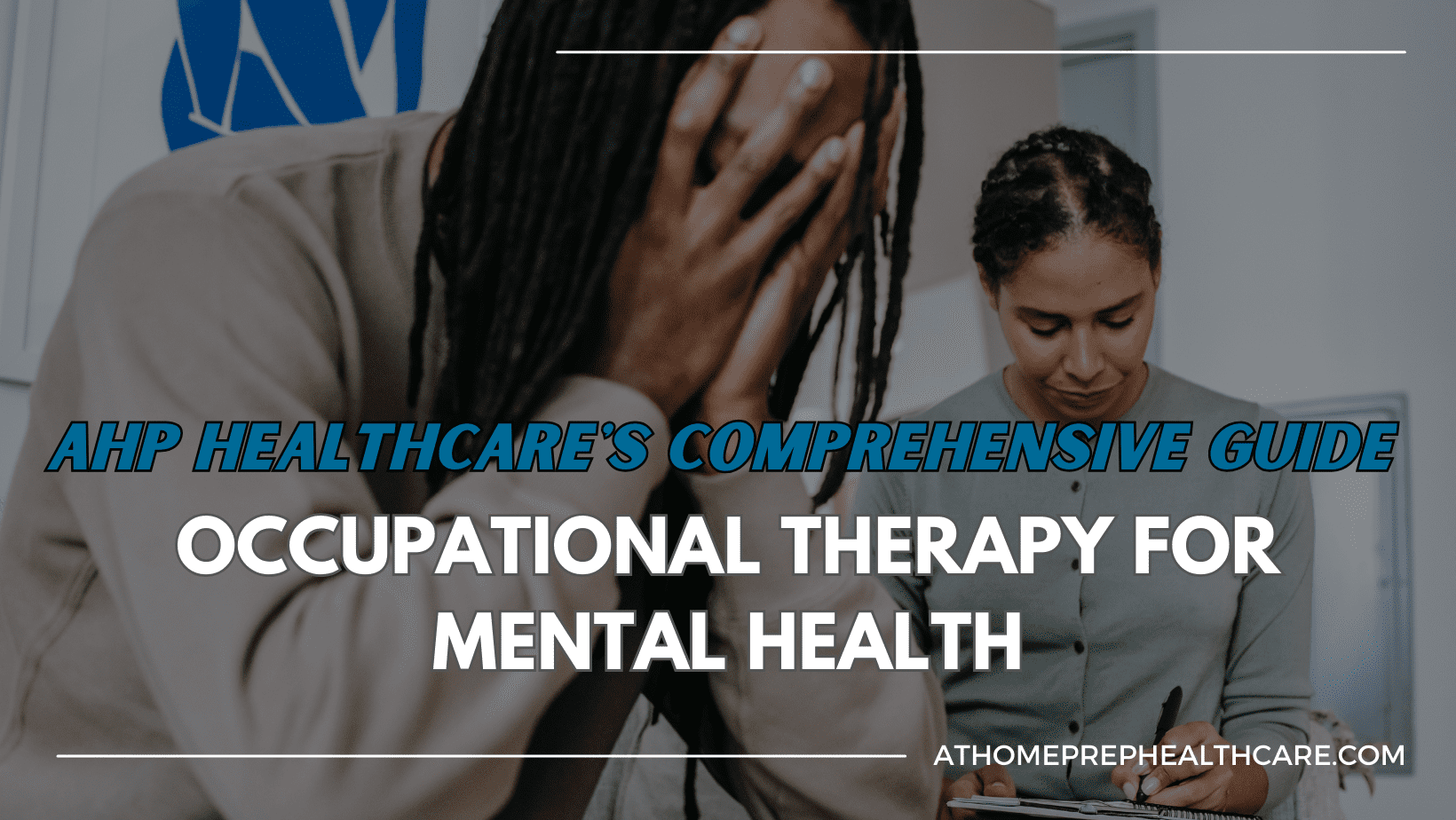 Mental health is a cornerstone of well-being, yet it’s often overlooked or stigmatized. Millions of individuals grapple with mental health challenges every day, from depression and anxiety to post-traumatic stress disorder (PTSD). The impact of these conditions can be profound, affecting not only emotional health but also the ability to lead a fulfilling life. Fortunately, the field of occupational therapy (OT) offers a beacon of hope for those seeking effective mental health treatment. In this blog, we’ll explore how occupational therapy can be a vital part of mental health treatment plans, offering support and strategies to improve the lives of individuals facing these challenges.
Mental health is a cornerstone of well-being, yet it’s often overlooked or stigmatized. Millions of individuals grapple with mental health challenges every day, from depression and anxiety to post-traumatic stress disorder (PTSD). The impact of these conditions can be profound, affecting not only emotional health but also the ability to lead a fulfilling life. Fortunately, the field of occupational therapy (OT) offers a beacon of hope for those seeking effective mental health treatment. In this blog, we’ll explore how occupational therapy can be a vital part of mental health treatment plans, offering support and strategies to improve the lives of individuals facing these challenges.
The Foundation of Occupational Therapy in Mental Health
Occupational therapy has a rich history in mental health care, dating back to its inception within psychiatric hospitals. The core principle of occupational therapy in this context is rooted in the term “occupation,” which refers to meaningful activities that fill our lives with purpose and satisfaction. Historically, therapists engaged patients in these activities to keep them productive, attentive, and motivated during their recovery. While the early practices may have involved activities like basket weaving and coloring, modern occupational therapy in mental health has evolved significantly. Today, occupational therapists recognize that the essence of OT goes far beyond keeping patients busy; it involves tailoring treatment plans to each individual’s unique preferences, goals and needs across various life domains.The Role of Occupational Therapy in Mental Health
The role of occupational therapy in mental health is multifaceted and highly customizable. Whether in inpatient or outpatient settings, the fundamental goal remains the same: to empower individuals with mental health conditions to lead fulfilling lives. Here’s how occupational therapists make a profound impact in this field:- Psychoeducational Groups: Occupational therapists conduct psychoeducational groups focusing on education as it directly pertains to an individual’s mental health condition. These groups provide insights and strategies for managing symptoms, treatment plans, and daily life effectively.
- Self-Care: OTs work with patients to address barriers to self-care, such as poor motivation, low energy, mood fluctuations, housing instability, and financial constraints. They help individuals regain independence in dressing, eating, bathing, and grooming.
- Relaxation and Stress Reduction Techniques: Stress reduction techniques, including hobbies, yoga, and exercise, are essential to mental health treatment. Occupational therapists guide patients in practicing relaxation strategies to reduce stress levels.
- Coping Strategies: Coping skills are vital for navigating daily life and managing stressors effectively. These skills encompass deep breathing, meditation, guided imagery, and other techniques that empower individuals to cope with stress in various situations.
- Emotion Regulation: Managing emotions is central to mental health care. Occupational therapists address anger management, conflict resolution, interpersonal dynamics, and social skills training to help individuals cope with uncomfortable feelings.
- Symptom Management: Education on symptom management covers a range of strategies, including coping skills, stress reduction techniques, and emotion regulation. These personalized plans assist individuals in addressing their specific symptoms effectively.
- Instrumental Activities of Daily Living (IADLs): IADLs encompass higher-level self-care tasks such as medication management, budgeting, laundry, cooking, and driving. Occupational therapists provide education and support to overcome barriers in these areas.
- Community Mobility or Re-entry: Depending on the setting, OTs educate patients on safely accessing the community or reentering it after hospitalization. This includes guidance on public transportation, navigating public spaces, and building social skills.
- Social Skills and Communication: Social skills are crucial for managing mental health conditions. Occupational therapists help individuals develop acceptable social behaviors, communicate effectively, and navigate social interactions.
- Diagnosis Education: Lack of information about one’s diagnosis and treatment plan is a common concern. Occupational therapists provide education on what to expect, treatment options, medications, and adjunctive therapies in a patient-centered manner.
- Individual Roles: OTs assist individuals in reclaiming their roles in life, whether as a parent, worker, caregiver, or volunteer. This personalized support ensures patients can participate in meaningful roles while managing their conditions.
- Productive Leisure: Hobbies and leisure activities are vital in mental health recovery. Occupational therapists help patients identify and engage in leisure pursuits that bring them joy and fulfillment.


